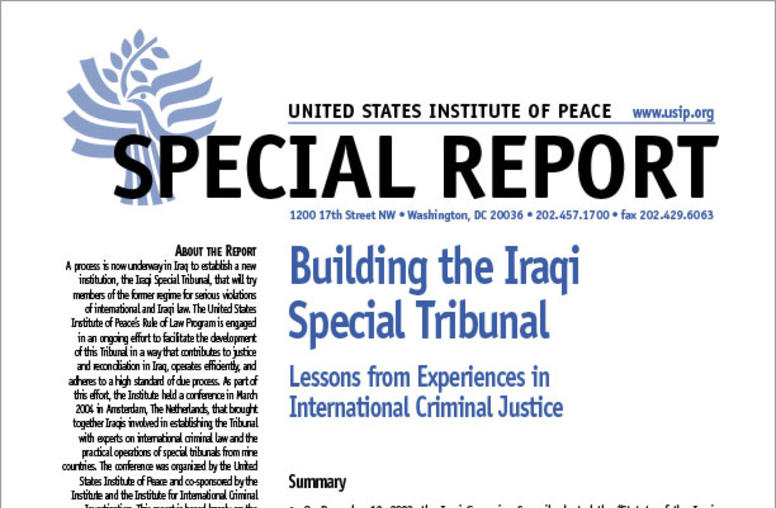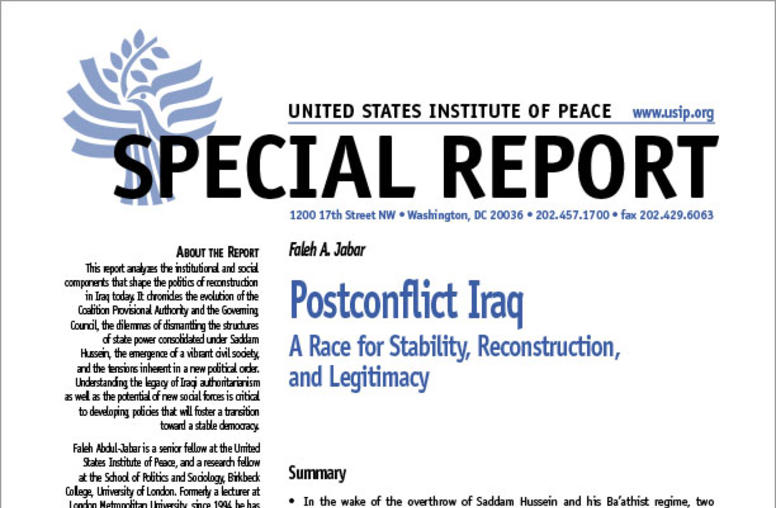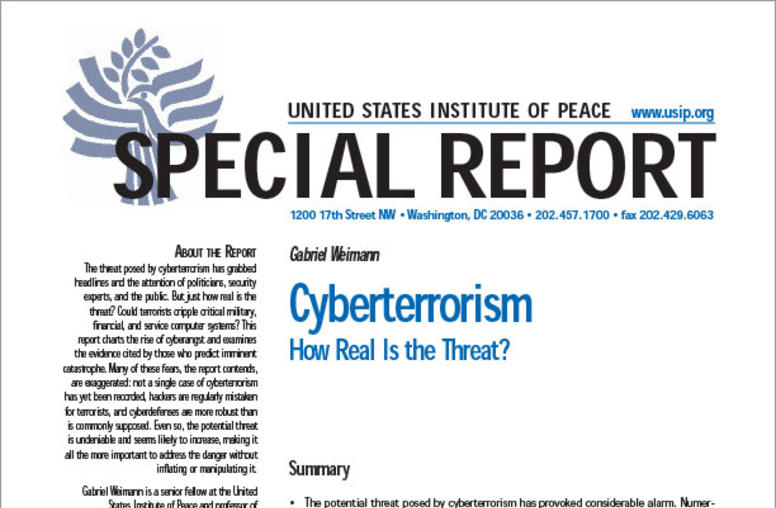Question And Answer
Publications
Articles, publications, books, tools and multimedia features from the U.S. Institute of Peace provide the latest news, analysis, research findings, practitioner guides and reports, all related to the conflict zones and issues that are at the center of the Institute’s work to prevent and reduce violent conflict.

Building the Iraqi Special Tribunal: Lessons from Experiences in International Criminal Justice
A process is now underway in Iraq to establish a new institution, the Iraqi Special Tribunal, that will try members of the former regime for serious violations of international and Iraqi law. The United States Institute of Peace’s Rule of Law Program is engaged in an ongoing effort to facilitate the development of this Tribunal in a way that contributes to justice and reconciliation in Iraq, operates efficiently, and adheres to a high standard of due process.
Kosovo and Serbia: Still in Need of a Plan
New USIPeace Briefing addresses the root causes of the violence and possible solutions.
Building the Iraqi Special Tribunal: Lessons from Experiences in International Criminal Justice (Arabic Edition)
Summary On December 10, 2003, the Iraqi Governing Council adopted the "Statute of the Iraqi Special Tribunal," providing the legal foundation and laying out the jurisdiction and basic structure for the Tribunal that will be responsible for prosecuting acts of genocide, crimes against humanity, and war crimes committed in Iraq between 1968 and 2003.
Truth Commission: Paraguay
Truth Commission: Truth and Justice Commission Duration: 2004 - 2008 Charter: Ley No. 2225 Commissioners: 9 Report: Public report
The Current Situation in Serbia and Montenegro
An Overview of U.S. Institute of Peace Activities to Promote Democracy and Minority Rights in Serbia-Montenegro and Kosovo

Post-Conflict Iraq: A Race for Stability, Reconstruction, and Legitimacy
This report analyzes the institutional and social components that shape the politics of reconstruction in Iraq today. It chronicles the evolution of the Coalition Provisional Authority and the Governing Council, the dilemmas of dismantling the structures of state power consolidated under Saddam Hussein, the emergence of a vibrant civil society, and the tensions inherent in a new political order.

Cyberterrorism: How Real Is the Threat?
Summary The potential threat posed by cyberterrorism has provoked considerable alarm. Numerous security experts, politicians, and others have publicized the danger of cyberterrorists hacking into government and private computer systems and crippling the military, financial, and service sectors of advanced economies.
Establishing the Rule of Law in Afghanistan
Congressional Testimony by Robert M. Perito, Coordinator, Iraq Experience Project, Professional Training Program, U.S. Institute of Peace.
Postconflict Iraq: A Race for Stability, Reconstruction, and Legitimacy (Arabic Edition)
Summary In the wake of the overthrow of Saddam Hussein and his Ba'athist regime, two main tasks have confronted the Americans and Iraqis who now hold power. One is to stabilize the country; the other is to liberalize it economically, politically, and socially. Although the requirements of stabilization have so far overshadowed progress toward liberalization, significant steps have been taken in transitioning from totalitarianism to free market democracy. Much more, however, remains to...
2003–2004 National Winner
Vivek Viswanathan Herricks High School New Hyde Park, New York Coordinator: Ms. Melissa Jacobs While the resolution of armed conflict may bring initial order within a war-torn nation, it does not guarantee long-term peace and stability. Establishing an orderly society from the ruins of war—enacting a workable political, economic, and social structure in a place where violence and instability have been the rule—is an undertaking that is necessarily complex. Moreover, the discontinuation of...